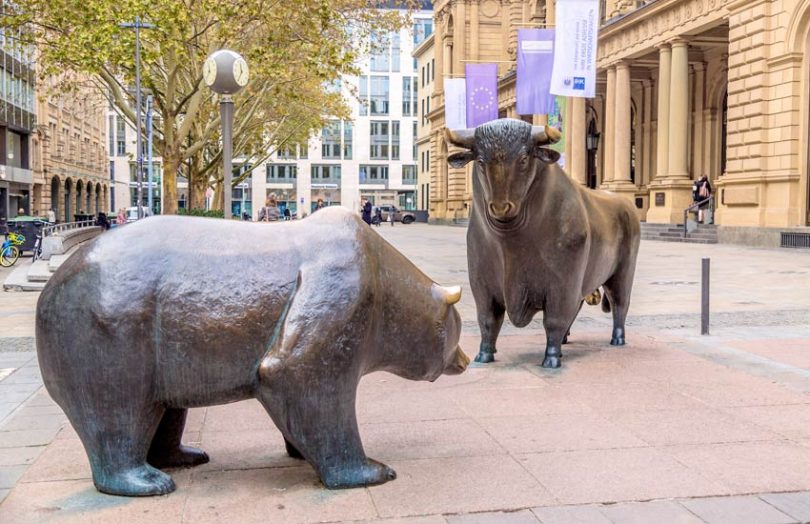Today German stock exchange Deutsche Börse announced plans to launch its digital post-trade platform D7 in November. The phased rollout starts with a new digital central registry for securities. By mid-2022, it plans to support digital same-day securities issuance. A third phase involves integrating with blockchain platforms and enabling delivery versus payment.
The launch follows recent changes in German law (eWpG), creating the concept of an electronic security that does not require a conventional stock certificate. The goal of the DLT-ready platform is to provide straight-through processing.
“With D7, we’re providing the financial community with a next generation digital securities post-trade platform to unlock the potential of truly digital and decentralised finance,” said Stephan Leithner, member of the Executive Board of Deutsche Börse.
“It’s time not only to digitise single processes; it’s time to reinvent post-trading altogether for a stronger, more sustainable and digital future of securities markets.”
Several major banks were involved in the development including BNP Paribas, Citi, DekaBank, Deutsche Bank, dwpbank, DZ Bank, Goldman Sachs, Raiffeisen Bank International and Vontobel.
Technology partners include Digital Asset and Microsoft, and R3 and VMware on the blockchain side.
“Many of Deutsche Börse’s members are already Corda users, so joining the D7 infrastructure essentially expands their current Corda capabilities,” said Charley Cooper, Managing Director, R3. “Corda was designed to be robust, scalable and interoperable so it becomes the defacto standard ledger of choice for regulated institutions.”
A phased approach
Deutsche Börse owns Eurostream Banking which operates a central securities depositary (CSD) in Frankfurt and an international CSD in Luxembourg. Eurostream Banking will launch the new digital central registry in November, which links to the Target-2 Securities infrastructure for settlement.
Digital Asset is the technology partner for the registry, which is built using a centralized database.
From mid-2022, D7 will support digital issuance, enabling straight through processing and removing the need for reconciliation.
“Digital Asset is at the center of this transformation, working with market infrastructures around the world to realize a digital future,” said Jens Hachmeister, Managing Director, Issuer Services & New Digital Markets, Deutsche Börse. “It’s with technology partners, like Digital Asset and others, that we can foresee having over 80 percent of German securities digitized via D7 by mid-2022, fostering digitization of the German and European financial markets.”
And after that, there are plans to integrate with HQLAX the digital collateral registry in which Deutsche Börse is a partner and investor and another investee, Luxembourg fund distribution platform FundsDLT.
At this stage, the solution will use Digital Asset’s smart contract language DAML and its blockchain interoperability solution.
Initially, the focus of D7 is digital securities. However, there are plans to support other digital assets and cryptocurrencies in the future. It also intends to integrate other payment solutions.
In April, Deutsche Börse and Commerzbank announced a new Frankfurt-based digital asset venture 360x which is looking to tokenize art and real estate. Two months later, the stock exchange group spent more than CHF 100 million ($108m) acquiring Swiss digital asset trading and brokerage firm Crypto Finance. It also recently ran experiments to use DLT for derivatives.
Updates: the content has been substantially rewritten






